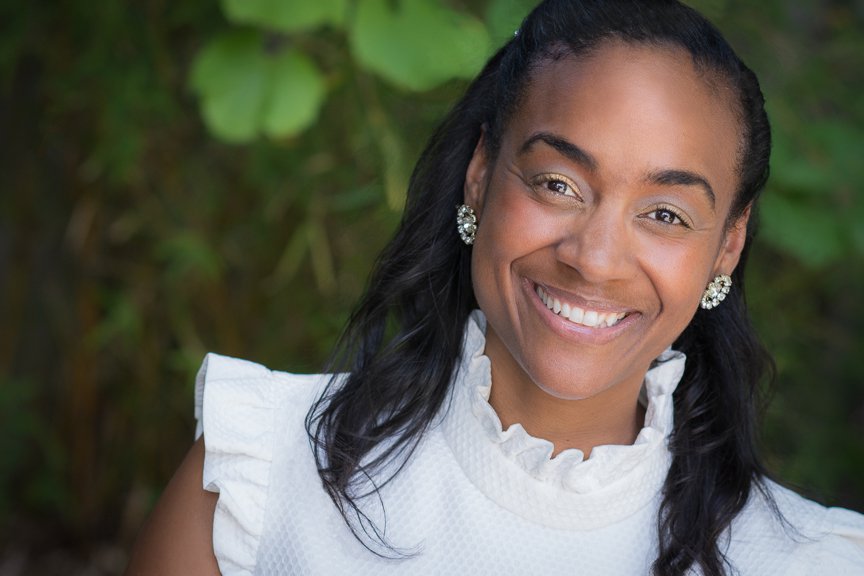Creating Just Futures with Restorative Justice
Maisha T. Winn is this year’s Jeannette K. Watson Distinguished Visiting Professor in the Humanities.

UPDATE: The remainder of the March 9-13 public activities have been canceled in response to emerging COVID-19 precautions and advisories.
The notion of restorative justice has a long legacy that traces back to Native and Afrocentric communities. The process involves offenders acknowledging what they have done wrong and accepting the obligation to right the wrong, as well as addressing the needs of those harmed and having all sides and the community be part of the solution.
Maisha T. Winn, the Jeannette K. Watson Distinguished Visiting Professor in the Humanities, uses these ideas to build relations of trust and pursue justice in interrelated systems of inequality. Winn’s work is shifting the mind-set from a top-down system of authority to a democratized one where all stakeholders have equal voices.
According to Winn, many schools too often rely on punitive measures when handling disciplinary issues. Instead of zero tolerance policies where students are suspended or expelled, she says schools and communities must respond to students’ needs in relational ways, addressing the trauma that may be responsible for a student’s behavior when approaching discipline.
“Winn powerfully shows us how restorative justice approaches can transform how we think about education and the relationships between teachers and students,” says Patrick W. Berry, associate professor and Chair in the Department of Writing Studies, Rhetoric, and Composition. “She calls it a ‘paradigm shift’ away from approaches that have proven unsuccessful.”
Berry, Brice Nordquist, assistant professor and director of graduate studies in the Department of Writing Studies, Rhetoric, and Composition, and Marcelle Haddix, Dean’s Professor and Chair, Reading and Language Arts in the School of Education, are hosting Winn’s two-part residency, with primary support from the Syracuse University Humanities Center.
Winn emphases the importance of teachers, staff, administrators and students building a sense of respect and mutual understanding. If all stakeholders are given space to take responsibility for their actions, there can be a culture for accountability. As she explains, all sides need to be open to the possibility of not always being right but, instead, making things right.
Nordquist says, “Winn’s guidance in the pursuit of mutual respect and accountability comes at a critical moment for SU, as we grapple with ways to effectively engage in restorative dialogue across campus communities for sustainable, justice-oriented institutional change."
Winn identifies four pedagogical stances at the heart of restorative dialogue: history matters, race matters, justice matters, and language matters. If all parties honor these pillars, there can be an opportunity for mutual respect and accountability.
“Winn’s insightful work underscores how the humanities are central to combating injustice and to imagining a more just world,” says Vivian May, professor of women’s and gender studies and director of both the Syracuse University Humanities Center and the CNY Humanities Corridor. “Winn contributes to scholarship on transforming our research and teaching methods to be more culturally relevant, inclusive, and places where we work collectively to achieve equity and social justice for all.”
Winn is the Chancellor's Leadership Professor and Co-Director of the Transformative Justice in Education Center (TJE) at UC Davis.
Week 1, March 9-13 schedule includes:
Monday, March 9 - Welcome reception for Professor Winn from 5 to 6 p.m. at the Community Folk Art Center, 805 E. Genesee Street, Syracuse.
Tuesday, March 10 – A public talk titled Agitating, Educating, Organizing: Historicizing Transformative Justice in Education from 5:30 to 7 p.m. in the Watson Theater.
Wednesday, March 11 - Decolonizing Research, Humanizing Methods, an RSVP required workshop is from 10 a.m. to noon, 304 Tolley Hall.
Thursday, March 12 - Justice on Both Sides Book Circle is from noon to 1:45 p.m., Peter Graham Scholarly Commons, 114 Bird Library.
Friday, March 13 – Building Connections: Grad Student Talkback social hour from 9:30 to 11 a.m., 300 Tolley Hall.
Week 2, April 6-10 schedule includes:
Monday, April 6 - Teaching and Learning in an Age of Mass Incarceration, an interdisciplinary panel featuring Cati de los Ríos, UC Davis; Erika Bullock, UW Madison; and Rita Kohli, UC Riverside from 5:30 to 7 p.m., Gifford Auditorium, Huntington Beard Crouse.
Tuesday, April 7- Restorative Justice Community Circles (break-out sessions with Lawrence "Torry" Winn, Vanessa Segundo and Adam Musser, Winn's team members from the Transformative Justice Center), two morning sessions in 304 Tolley Hall and two afternoon sessions at Café Sankofa Cooperative, 2323 South Salina Street, Syracuse. RSVP required.
Wednesday, April 8 - Research Roundtables: How Can a Transformative Justice Impulse Inform Our Research? Discussions led by Winn and TJE colleagues will be from 9 to 11 a.m., Kilian Room, 500 Hall of Languages.
Thursday, April 9 - Restorative Justice Pedagogies Book Circle. This event will feature dialogue about how restorative justice can inform course design and classroom practice, noon to 1:45 p.m., Peter Graham Scholarly Commons, 114 Bird Library.
The Jeannette K. Watson Distinguished Visiting Professorship in the Humanities was established by the Watson family to support on-campus residencies of prominent humanities scholars, writers and artists.
